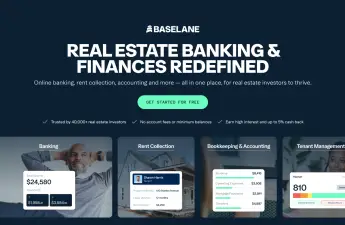Landlords have a range of options for renting out their properties, from long-term leases spanning months or years to short-term rentals lasting just days or weeks. This post explores the pros and cons of short-term rentals compared to traditional leases, offering insights from our personal experience.
In this episode, we’ll discuss:
For additional information, visit our YouTube channel or see the complete video.
What is a Short-Term Rental?
A short-term rental provides fully furnished accommodations for brief periods, often catering to tourists or business travelers. These rentals operate much like hotels, with stays typically measured in days or up to 2–3 weeks. Medium-term rentals, by contrast, may span one to three months and are often used by those relocating or on extended work assignments. One platform that supports this type of stay is CorporateHousingbyOwner.com
Short-term rentals vary in type, ranging from private rooms within a home to entire apartments or standalone houses. A common example is an accessory dwelling unit (ADU)—a mother-in-law flat, garage apartment, or backyard cottage that’s physically or functionally connected to a main residence.
Unlike traditional landlords, short-term rental operators are referred to as hosts and often rely on platforms like Airbnb, Vrbo, and Booking.com to manage bookings. These platforms streamline guest screening, payments, and communication, though hosting may still require meeting local licensing, certification, or taxation requirements. In areas with housing shortages, short-term rentals may face restrictions because they are thought to remove housing stock otherwise available to permanent residents. On the other hand, medium-term rentals could be subject to rules similar to those governing long-term leases.
Advantages of Short-Term Rentals
Higher Potential Revenue
One of the biggest draws of short-term rentals is their potential for higher earnings. Guests typically pay a nightly rate, which can add up to more than a year-long lease, even with less than full-time occupancy. However, factors such as fluctuating demand, competition, and seasonality should be taken into consideration when calculating possible short-term rental profits. While revenue can be unpredictable, short-term rentals often generate higher returns in high-demand markets, so can offer additional income, even if not rented continuously.
Flexibility
Short-term rentals allow property owners to block dates for personal use, offering unparalleled flexibility. Whether hosting family or friends, or only wanting to be available for hosting for certain periods of the year, you can adjust availability as needed. Additionally, stopping rentals is simple—there are no tenant laws requiring justification or legal hurdles to terminate stays. The temporary nature of these arrangements makes them easier to manage than long-term leases.
All-in-one Rental Platforms
Platforms like Airbnb and Vrbo make setting up a short-term rental straightforward. A host should simply create a profile, list their properties, upload attractive photos of the space, and provide details on the amenities available there. As mentioned above, availability can also be easily adjusted prior to a guest’s booking request. Connecting guests with properties is built into the platform, so once the property is listed, there is no need to look for additional avenues for advertising. There are additional ways to boost the property’s visibility within a given platform, such as offering discounts and obtaining super host status.
Features like smart pricing automatically adjust rates based on market demand, and built-in reviews help screen guests. When guests register with the platform, they provide government identification and payment methods– a built-in form of vetting. Hosts can also check reviews from previous guest stays before accepting a reservation request. In addition, there is a messaging system built into many platforms, allowing tenants to have direct contact with guests, and providing documentation to the administrators of the platform, should an issue arise.
Platforms often handle insurance and may mediate disputes, such as property damage or last-minute relocations for guests due to unforeseen issues. Alternatively, if a guest causes damage to the property, the rental site can act as an intermediary to collect additional fees from the guests to cover repairs.
Disadvantages of Short-Term Rentals
Hospitality Industry Standards
Short-term rentals place hosts in the hospitality industry, which can require more effort than traditional landlording. Properties must be fully furnished, attractively decorated, and stocked with essentials like linens, toiletries, and kitchen supplies. Additionally, hosts are responsible for covering utilities, internet, and repairs, even during vacancies. Hosts are expected to deal with issues that may not otherwise come up in a normal lease situation, such as granting access to the guests at certain times of day and night or instructing a different set of guests how to take out the trash every week. Between frequent cleanings, maintenance, and guest communications, the workload can be substantial. Landlords who don’t want to deal with communicating the same kind of information to a new set of guests every week or month may want to consider whether a short-term rental is right for them.
Wear and Tear
High guest turnover often results in greater wear and tear. Unlike long-term tenants who treat a rental as their home, short-term guests may be less mindful. Common issues include broken appliances, missing items (e.g., utensils or linens), and general damage. We have had guests clog garbage disposals with chicken bones, rearrange or even write on furniture, and take things such as kitchenware and bulk cleaning supplies. So while the space is not being lived in as regularly, the wear and tear on the property can be higher than with a full-time tenant, who treats the place as home. Additionally, frequent upkeep is necessary to maintain the property’s appeal and functionality. This includes regular cleanings, as well as yard maintenance.
Local Laws and Neighborhood Impacts
Short-term rentals are regulated differently from long-term leases. Municipalities may impose licensing fees, inspections, and limits on the duration of a stay before it becomes subject to landlord tenant compliance laws. In areas with housing shortages, restrictions on new short-term rental permits are common. Additionally, short-term rentals can strain neighborhood relations due to noise, parking issues, and disruptions caused by partying guests. Hosts must balance compliance with regulations and maintaining good standing in their community.
Frequently Asked Questions
Hosts operate more like members of the hospitality industry. They provide a fully equipped space and handle guest needs, similar to a hotel, as opposed to the hands-off nature of long-term leases.
Yes, hosts are responsible for the cost of utilities, internet, furnishings, regular cleaning, as well as property repairs, which can add up– especially during periods of vacancy, as some of these costs are incurred regardless of occupancy status.
Yes, but it requires effort to handle bookings, guest communications, professional cleanings and linen service for each guest, and property upkeep. For this reason, some hosts outsource some or all of the related property management services.
Many areas require licenses, impose limits on rental durations, or restrict short-term rentals in response to housing shortages. Researching local laws is essential for starting a short-term rental.
Short-term rentals can stand out for their unique amenities, locations, design or decor. A key way to attract guests is to invest in appealing furnishings, professional photos, and to include a detailed property description and amenities list. Offering high speed Wi-Fi, streaming TV services, kitchen supplies, parking, and welcome beverages or snacks can also enhance guest satisfaction.
Short-term rental income is generally considered taxable and must be reported to the IRS or your country’s tax authority. Hosts may also be subject to occupancy taxes, similar to hotel taxes, which can vary by location. However, expenses related to operating the rental, such as utilities, cleaning, furnishings, and maintenance, can often be deducted. You may way to ask a tax professional familiar with short-term rentals about the following issues to ensure compliance and maximize your allowable deductions:
⬩Personal use limit deductions
⬩Local tax implications
⬩1099-K forms
⬩Depreciating the value of your property
Consider whether you’re comfortable with the responsibilities of hosting, potential regulations, and higher property wear and tear. If you prefer stable income and less involvement, a long-term lease might be better.
Takeaway
Short-term rentals can offer landlords an alternative way to make income on their properties, giving more flexibility for personal use of the space, and can be easy to get up and running due to the popularity of various online platforms specializing in facilitating the rental process. However, they also require more inputs in the form of furnishing, cleaning, fielding requests, and handling issues. They can also be subject to various local regulations and short-term rental units with high occupancy rates often experience more wear and tear than long-term lease units. As such, when compared with shorter-term rentals, long-term leases offer landlords stability, simplified management, the ability to charge tenants for utilities, and low risk of vacancy.

Landlording A-Z Series:
Our Landlording A-Z series will walk you through each of the stages, tasks, and issues involved in rental real estate investing. In our next installment, we’ll discuss the move-out process.
Disclosure: Some of the links in this post are affiliate links and Landlord Gurus may earn a commission. Our mission remains to provide valuable resources and information that helps landlords manage their rental properties efficiently and profitably. We link to these companies and their products because of their quality, not because of the commission.




